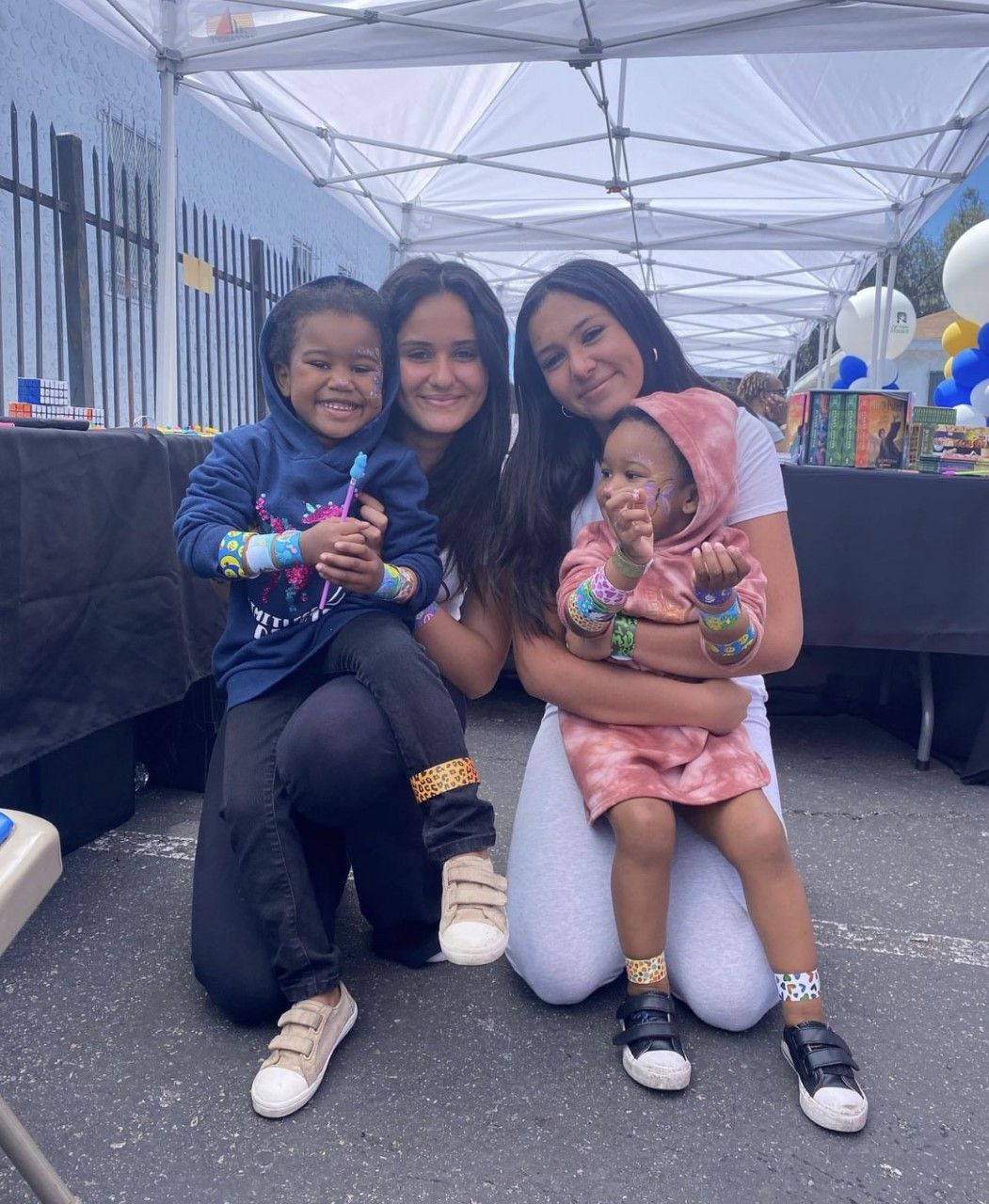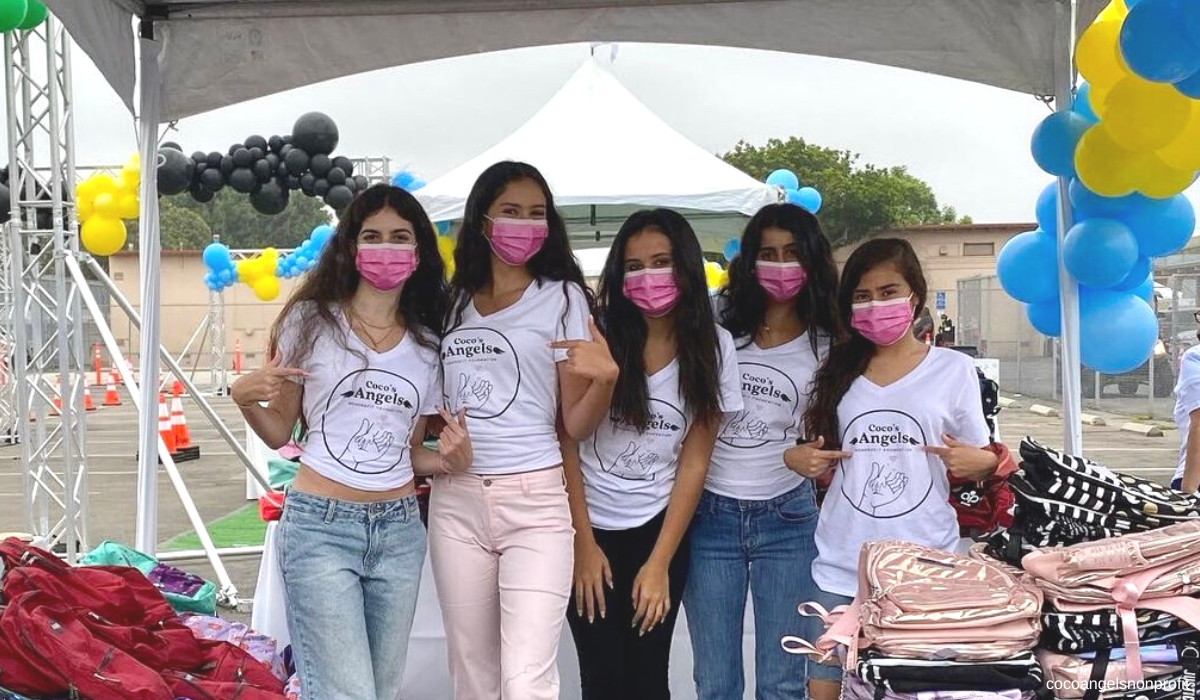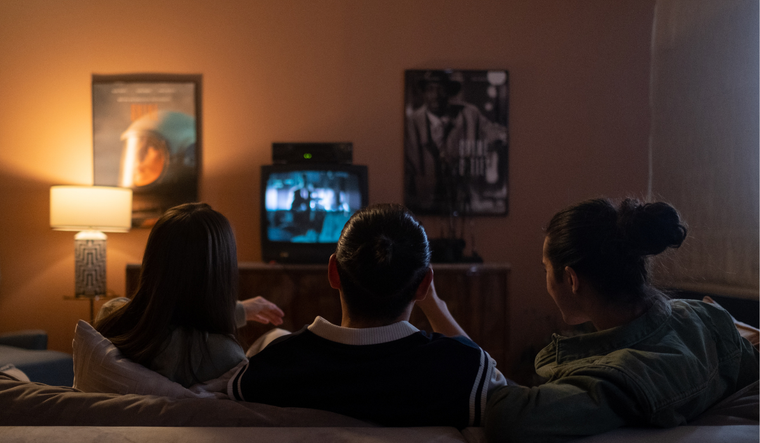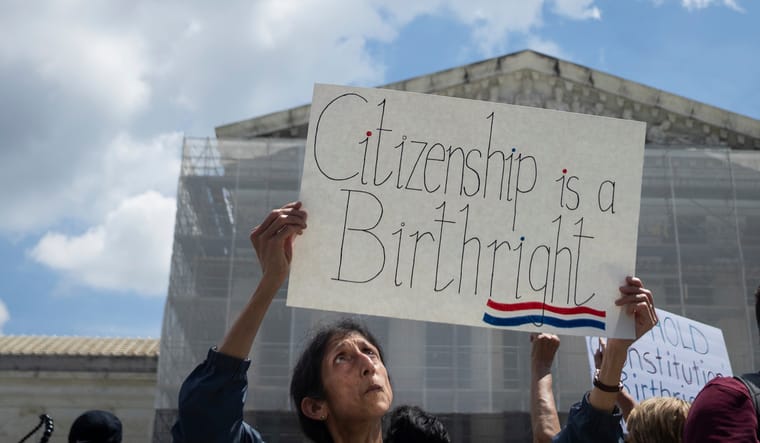She's Helping LA's Foster Kids and Juggling High School. Meet the Teenage Founder Behind the Non-Profit Coco's Angels
It all started with one person—“a newborn baby addicted to heroin and crystal meth. Her name is Coco.”
Sixteen-year-old Layla Tehranchi is telling us the origin story of Coco’s Angels, the non-profit she and her older sister, Delara, started in their hometown of Los Angeles. The Tehranchi sisters created Coco’s Angels to bolster foster children and eradicate the inequities kids in the system face, particularly when it comes to their education. It’s a topic dear to Layla, who speaks passionately on the phone. Not only because Coco is now her sister. But because too many foster children face injustices they should never have to face, believes Layla.
As she tells us, “if we don’t fix the problem of educational inequity in one of the most polarized socioeconomic countries in the nation, these young foster children will have a significantly lower chance of attending colleges, finding profitable and meaningful careers, and just gaining the fulfillment they deserve.”
A CONVERSATION WITH LAYLA TEHRANCHI
Walk us through how you and your sister started Coco’s Angels.
My mom is an OB/GYN in LA and she met Coco's mom on the Dr. Phil show as one of the doctors offering her medical advice on what to do. My mom knew she needed to do something because this woman had not been to a doctor since she’d been pregnant and had no family supporting her throughout this process. My mother became that support system for her throughout her pregnancy and ended up delivering Coco.
My mom tells the story beautifully: She never goes into the hospital on Fridays. But this Friday she just happened to go and check on Coco. And this Friday happened to be when the social worker was coming to tell Coco’s mother that Coco would be taken into the foster care system. My mom happened to be in the room, and she thought of how hard she’s worked to make sure Coco was born healthy. To let this baby go into the corrupt foster care system would be doing her such a disservice for her future, especially being a baby born addicted to heroin and crystal meth. So my mom asked if we could foster her. Coco ended up coming to our house three days later. And now we’re currently working to adopt her.
What would you like for people to know about the hurdles children in the foster care system face?
One of the most important things that we strive to fix with Coco's Angels is the disparity of education in Los Angeles, especially as it pertains to foster children.
I come from a very privileged life, and I’ve had access to academic resources, faculty support, and family support, which so many foster kids do not have. This has helped frame this perspective of wanting to be a voice for the children who aren't able to communicate their needs to families they often don't have. These kids aren’t provided the strong family structures that I was provided. As a child of parents who are first-generation immigrants, and with a foster sister who was a ward of the state for nearly a year, this has exposed me to the injustices that still exist in classrooms and across district lines.

How are you working to combat this?
In August 2020, my sister and I organized a back-to-school event with Coco's Angels. The funds went to purchasing over 2000 backpacks, lunch boxes, and calculators for students who were a part of Guardians of Love and the LA Mission, which are two organizations with which we work closely.
Talking with the families of the students made me realize how much more we still need to do to give every student and every foster student in Los Angeles a fair playing field to succeed. And I think education is the single most important means for finding financial security and gaining independence for these foster children when they eventually age out of the system. I've learned about children during Covid sitting outside of Taco Bell to get internet just so they can go on their Zoom school calls. Or of children who didn’t have access to computers or iPads or Wi-Fi. So it wasn't even that they weren't able to take advantage of the academic opportunities they were provided. They just didn't have the means to even get started.
So I think that not even foster agencies or organizations like ours, but just we as humans have a collective mission to create change that allows each young person in our community to have justice, especially as it pertains to school.
So whether we’re figuring out ways to implement pre-K services in Crenshaw [a neighborhood in Los Angeles], which is one of the things that we're working on, or setting up peer tutoring programs across the cities and within our country, or reaching out to organizations to partner with, we honestly really do have our work cut out for us. If we don’t fix the problem of educational inequity in one of the most polarized socioeconomic countries in the nation, these young foster children will have a significantly lower chance of attending colleges, finding profitable and meaningful careers, and just gaining the fulfillment they deserve.
For someone who wants to get involved in helping foster children in their area, what is your advice for where to start?
I always work on my audience, empowering teens that are the same age as me. Because it can be so hard to want to get involved, but it can be overwhelming sometimes. Honestly, I think a lot of people have this idea that to make a significant change, they need to start a nonprofit or build an organization—but that's just not true. Doing a little research and finding something that you’re passionate about, doesn't even have to be helping foster children, and getting in contact with organizations—even sending one email!—can do so much. Just starting that form of communication can spiral into creating lasting significant change.
To learn more about Layla Tehranchi and Coco’s Angels, and to support their mission, visit cocosangels.org and follow @cocoangelsnonprofit.
Please note that we may receive affiliate commissions from the sales of linked products.



